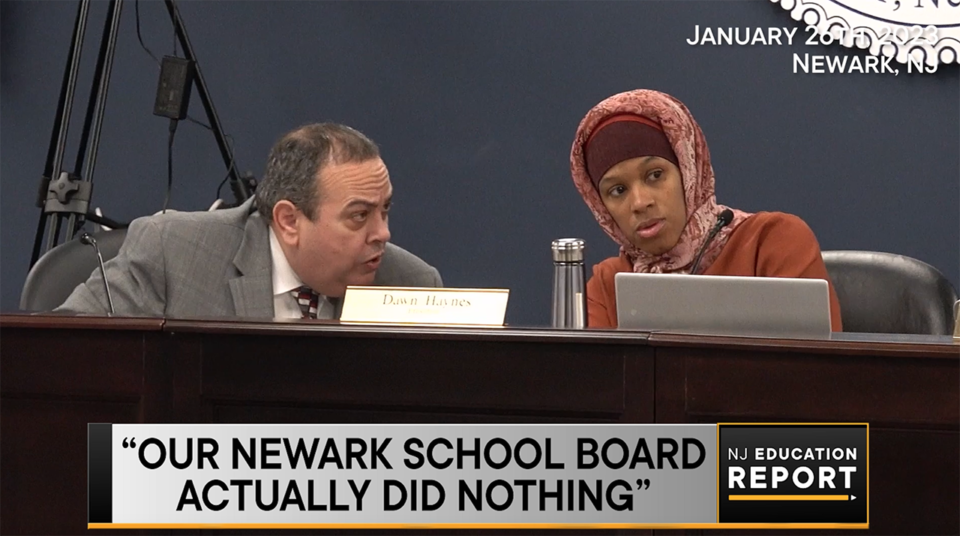
State Legislators Say NJ Schools Are Marginalizing Parent Voices
July 11, 2023
Amid ‘Education’s Long COVID,’ Here Is a Spark of New Jersey Health
July 11, 2023SHANE: This Is How We End New Jersey’s Teacher Shortage
Samantha Shane is a teacher leader policy fellow at JerseyCAN and a teacher at Morris County School of Technology. This was first published at nj.com.
In 2014, I met Juan Ouvina in a teacher preparation course at Montclair State University with other eager future teachers. Ouvina emerged as a leader in education through his countless hours of volunteer work and dedication to the field.
When speaking to Ouvina, he shares a common yet bleak perspective on how significant the teacher shortage is plaguing New Jersey school districts. Ouvina shared:
“The substitute shortage has had a big impact on student learning. Many times because there aren’t enough substitutes, we combine classes. Students face a lot of learning loss and opportunities to extend their knowledge. We also have long-term substitutes that don’t have the certifications. We need more teachers and that is evident.”
The teacher shortage, exacerbated by the pandemic, has plagued our schools and negatively impacted our students. Standardized test scores showed 51.1% of students in the state were not meeting grade expectations in English Language Arts. JerseyCAN’s Workforce Report reported specialty area teachers, like teachers of English as a second language, math, and career and technical education teachers, have been in short supply for years.
Unfortunately, as a teacher, I see similar realities in my own district. Students are missing the opportunity to grapple with complex content, practice hands-on experiments or use quality feedback. Becoming a teacher was a lifelong dream and working with students as they found a new love of reading is what fueled my passion. However, as I began teaching, it was evident students cannot succeed without high-quality teachers. It is established that a teacher shortage exists but as a community, we need to take action now.
Our top priority is that we must create and support legislation that creates opportunities for diverse teachers to join the workforce, eliminates financial barriers for college students and incentivizes teachers to remain in the workforce.
Gov. Phil Murphy implemented a teacher shortage task force in fall 2022 with promises of an action plan and the task force recently revealed their recommendations. Some of these recommendations include establishing a teacher apprenticeship program, creating pipelines for students into teachers from middle school, and alleviating teacher licensing fees.
A new program, Grow Your Own, which is being piloted in a handful of schools, (Bill S3118) would incentivize students to return to their home districts to teach. This program could help increase teachers returning to their districts and alleviate staff shortages. Our vocational school districts can be a powerful place to start with this program
Bill S2317 is centered on establishing a competitive grant program to provide funding to recruit, train and place teachers in high-poverty school districts. Our students of color make up 56% of the state’s student population whereas only 16% of New Jersey teachers are of color according to the NJ Department of Education.
Bill A1612 advocates for loan redemption for science and math teachers through employment in public schools. Incentivizing loan forgiveness can recruit high-quality teachers to our public schools and help provide students with a strong background in math and science, fields that are important to future jobs.
Colleges and universities are additional avenues that can help combat the teacher shortage. The biggest barriers current students face in college and universities to become teachers are financial problems and testing. Nikki-James Soto is a current graduate student at Montclair State University. She received her bachelor’s degree last year and is currently a student teacher in an elementary school.
She is graduating with her degree, which will allow her to teach as a kindergarten through 6th-grade teacher who works with students with disabilities, she shared: “After a full day at the school, we are working part-time jobs, odd jobs, and trying to count our pennies watching the savings we built up dwindle. All while not being allowed to take days off to get interviewed by possible employers, taking costly state tests, creating portfolios, resumes, and cover letters, and filling out lengthy applications for a possible call.”
Our cooperating teachers receive a mere $550 for the eight months they teach us and allow us to make mistakes, try things and grow in their classrooms while our universities collect upward of $15,000 from us in the process. The high cost and lack of pay for student teaching detour creative, bright, and compassionate people from the profession. We want to inspire the inventors, and change-makers of tomorrow, but I think it is only fair if we are making some change of our own.
Future educators need to pay fees to take numerous tests like Praxis Core, Praxis subject-specific, and certification fees. Bill A5419 seeks to remove the requirement for educators to take and pass the Praxis Core. Removing this would help eliminate a financial barrier and remove an unnecessary step for future educators.
Bill A5420 supports future educators receiving a stipend while completing their clinical practice. Currently, aspiring educators work full-time as student teachers without being paid. These bills can help promote and incentivize prospective teachers. Student teachers deserve compensation for the time spent working in a school as many other internships and apprenticeship programs provide compensation.
As a parent, community member, or educator use your voice to advocate for increased measures in recruiting and retaining teachers. Write your local legislator to discuss the current state of schools and share stories about how teachers have impacted our student’s life is important. I strongly believe the power of stories and our voices can help make significant changes.
Provide support for a bill that is proposed so your local legislator can advocate for it. These bills are powerful in boosting the field of education and improving student learning. Demand more support for schools and teachers.
The importance of education remains essential in a world where students need to navigate a vast internet, changing political landscapes, and increased technology. We might risk losing quality teachers like Juan and future teachers like Nikki James if we don’t act quickly to support our educators.




